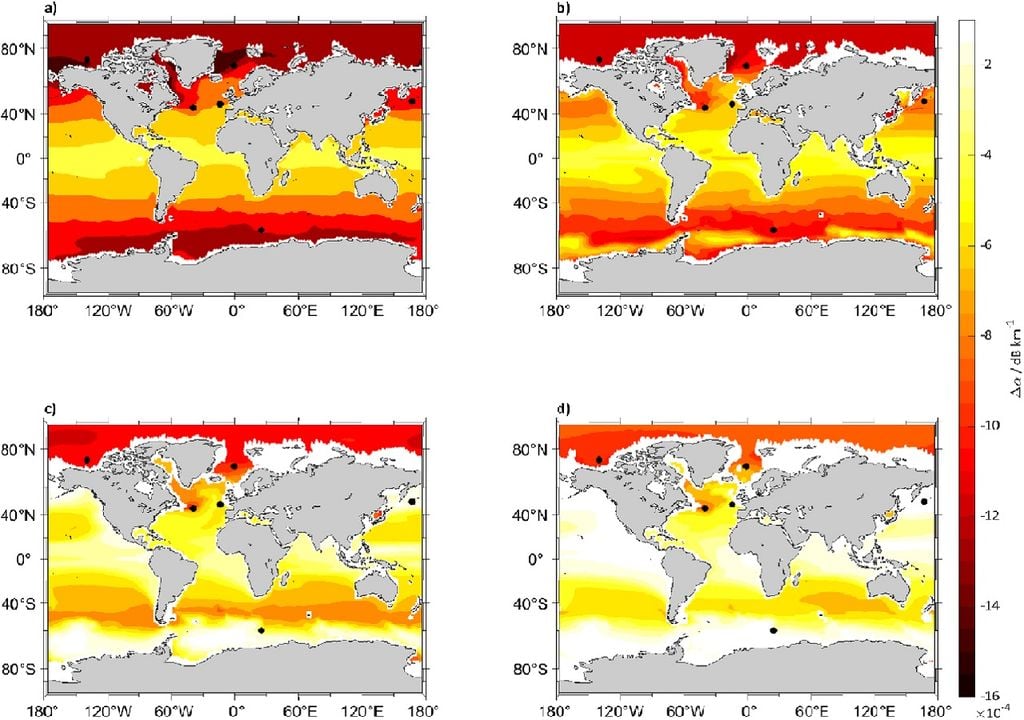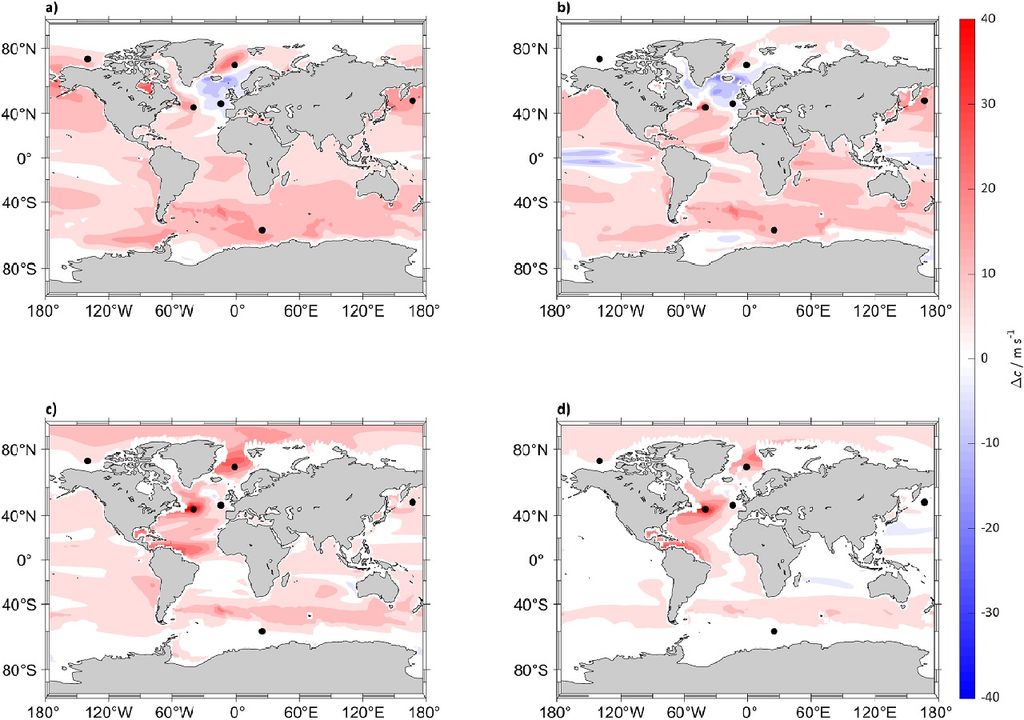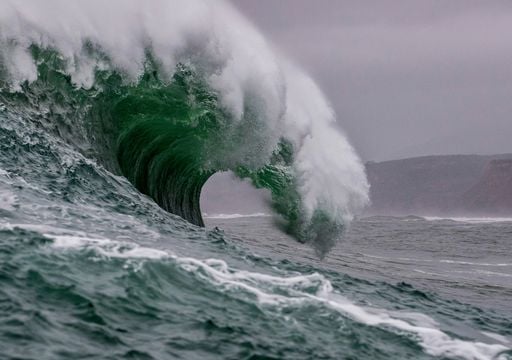Oceans with unprecedented noise: anthropogenic activity and climate change invade the Earth's seas
The natural soundscape is being altered by marine transportation, oil exploitation, defense activities, coastal construction and more. Be surprised by what a new study reveals.

Since the industrial revolution the oceans have become substantially noisier, due to increased marine transportation, resource exploration and infrastructure development that affect marine life on multiple levels. In addition to this anthropogenic noise, climate change is altering the thermal structure of the oceans, which could influence the propagation of noise.
Temperature changes can modify the speed profile of sound, causing the creation or disappearance of sound conduits through which sound can propagate over long distances, the following study indicates.
According to the study "Predicting the contribution of climate change on North Atlantic underwater sound propagation", recently published in PeerJ, over the last century we have increased sea water temperature and decreased ocean pH. Ocean acidification will decrease sound absorption at low frequencies (below 10 kHz), improving long-distance sound propagation.
The research team explored the global effect of climate change during the winter and summer seasons, using atmospheric and sea water temperatures for the periods 2018-2022 and the projection for 2094-2098 as input data. They also included salinity, pH and wind speed.
Shocking projections for the end of this century
The study was based on mathematical modeling in collaboration with Utrecht University, using a moderate to extreme climate scenario from the Intergovernmental Panel on Climate Change (IPCC).
Importantly, both the temperature and acidity of the water affect the ease or difficulty with which sound travels through the ocean. Due to continued greenhouse gas (GHG) emissions, seawater is becoming more acidic and, coupled with rising temperatures, researchers anticipate that underwater sound will travel farther in the future in most of the oceans.

"In this way a separate 'sound channel' can be formed in the upper part of the North Atlantic. This will act as a kind of tunnel that will carry sounds much further. As a result, the sound level in this part of the oceans will increase by 7 decibels (dB) by the end of this century, in a moderate climate scenario," said Luca Possenti, first author of the study.
Therefore, the sounds generated by marine traffic and other sources such as compressed air guns used for seismic studies will increase. Furthermore, the number of ships is likely to increase in the near future, raising the total amount of noise in the oceans. Even in a moderate climate change scenario, severe conditions could occur.
"In the absence of good visibility underwater, fish and marine mammals communicate mainly through sounds. If fish can no longer hear their predators, or if whales have more difficulty communicating with each other, the entire ecosystem will be affected," says Possenti.
"Much is still unknown about the exact effects of underwater conditions on the speed of sound. But because of the potentially profound effects on the ecosystem, that knowledge is essential if we are to understand the consequences of climate change on marine life," says the research team.
In addition to this theoretical study, Possenti and his collaborators are working on real measurements of underwater sounds. With broken glass spheres, they generate sounds at a level that marine mammals use at considerable depths, which they record tens of hundreds of km away.








